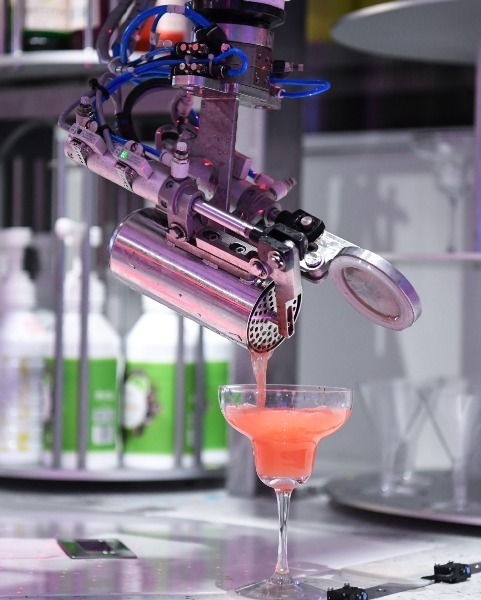
Industry insiders believe that embracing big data and AI will become an important direction for the future development of the catering industry. (Photo: Xinhua)
Three stir-fry robots are "working" in the kitchen of a restaurant in Jinan, capital of eastern China's Shandong Province, during peak lunch hours.
The robot chefs can automatically add oil and seasonings, take good control of the heat and fried rice can be ready in less than three minutes.
The robots can cook over 30 dishes, including the most popular black pepper and garlic flavored beef fried rice, tomato fried Japanese noodles and spicy noodles.
The whole dining process is touchless. Customers order food on their mobile phones or on in-store tablet computers and then take their own meals.
"Many high-tech measures are beingIndustry insiders believe that embracing big data and AI will become an important direction for the future development of the catering industry. applied in our restaurants," said Hou Mingjing, marketing director of Shandong Camry Commercial Group. "Our staff has been cut from over a dozen to just four after the robot chefs were introduced, and we also have food delivery robots in more than 20 of our restaurants."
Industry insiders believe that embracing big data and AI will become an important direction for the future development of the catering industry. It is also an effective method to save costs and improve service quality.
A fast food company in Jinan went online to serve customers via a WeChat program during the epidemic. The move received a surprising welcome from nearby white collars, who no longer need to wait for food inside the eatery.
"We were inspired and planned to set up thermal cabinets in some office buildings. Customers can order food in advance and we will deliver the food to the cabinets," said Song Yefei with the company.
Many restaurant chains in China have also expanded their service online and stepped up efforts to develop semi-cooked or ready-to-serve food, as well as promoted their products in shopping malls or via live streaming to lure cooped-up foodies.
"We suffered huge losses amid the epidemic. But we are gradually recovering with more restaurants open these days. We stay confident in the future as the consumption market in China is very big," said Hou.


